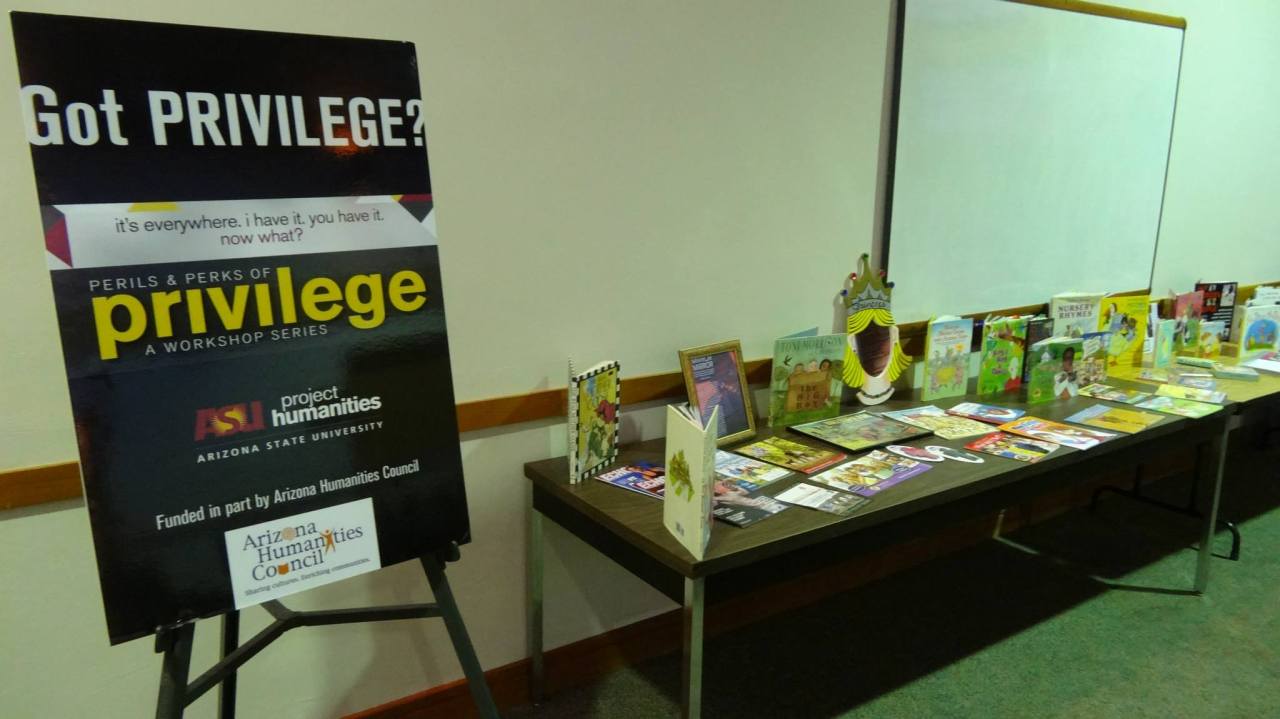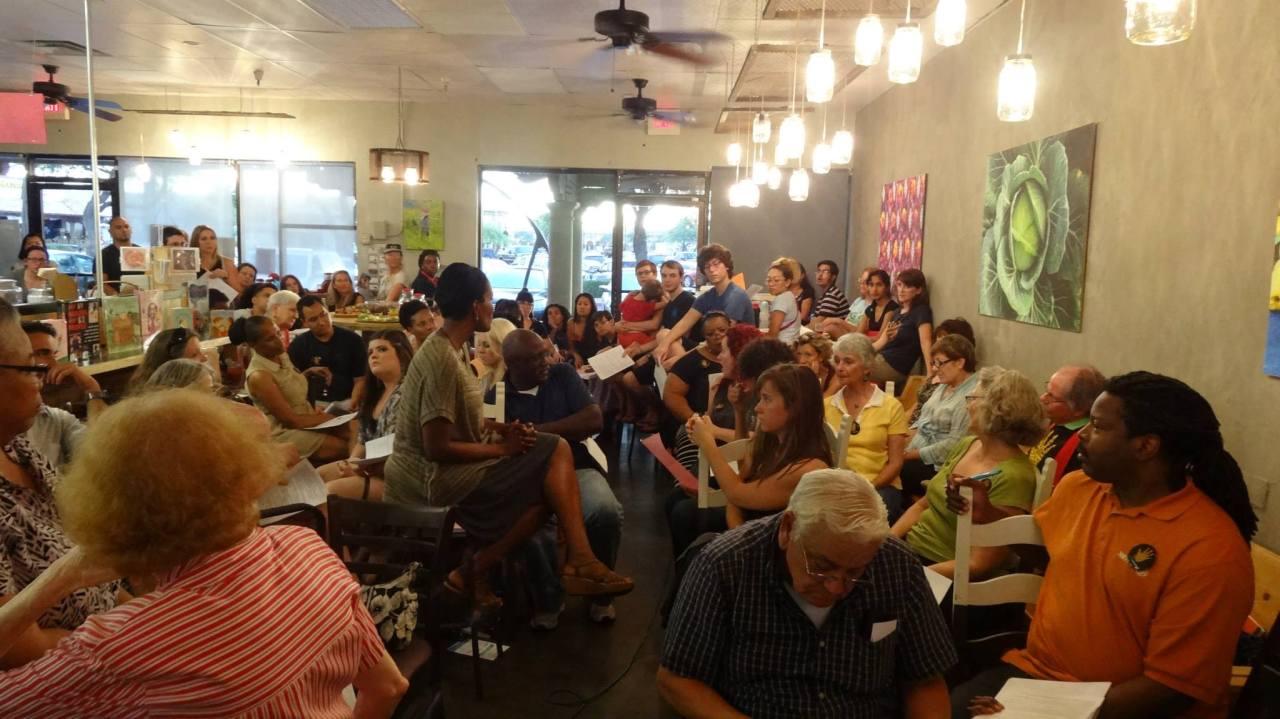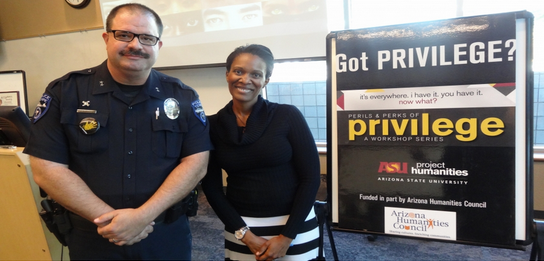Sunday, March 29, 2015
Last week I came across an article arguing that the word "thug" is the new "n----r."
Could this be true?
This Friday I also had the privilege of sitting in on a high school presentation of Dr. Neal Lester's "Straight Talk about the N-Word." During which, he talked about the connotations of the N-word throughout history, and why it is considered to be so offensive.
I learned that not only was it a word to express hate, but it was often just a commonplace word to describe African Americans. In early 20th Century pop culture, the n-word was usually paired with derogatory statements, pictures, or lyrics. The n-word wasn't just something people randomly yelled when they wanted to hurt African Americans (although it was frequently used for that purpose as well). It was a word used to demean and categorize a whole subgroup of people on a day-to-day basis.
I had already read the article before I went to this presentation, and as I listened, I thought of the similarities between "thug" today and "n-----" in the past.
"Thug" is a word used far too often to describe African Americans. Every time we see a black victim of violence, the media is always trying to justify their attacks by trying to prove they are "thugs." And what exactly is a "thug?" What does one have to do to be considered a "thug?" The answer depends on who you ask, but to get a basic idea, I looked it up on Google images. Here's what came up:
Notice anything they all have in common?
These are the over exaggerated images that come to mind when somebody tries to imagine a thug. Like the n-word, "thug" is a word encompassing a negative connotation, perpetuating the mistreatment of African Americans that is used in a commonplace context. Because of this, I am entirely behind the idea that "thug" shares nearly identical implications with the n-word.
Is "thug" the new "n-----r?" It could be, it's used just as commonly to say something very similar, but that's just my opinion. What are your thoughts?
Sunday, March 22, 2015
I am cisgendered. Which means that I can never fully understand what it feels like to misgendered, or how detrimental this can be to somebody's self esteem, but I do know that being recognized as the correct gender is a huge issue within the transgender community. This is why it is so important to be diligent in recognizing and supporting those who are transgendered or transitioning, and the very best way to do that is with our words. Specifically gender pronouns.
As Everyday Feminism argues, using the correct gender pronouns is essential to becoming an effective ally for the LGBTQ community. People want to be called the right pronouns. It sounds like an easy concept to grasp, after all no "sir" wants to be called "ma'am" and the same applies in vic versa. But misgendering means a whole lot more to those who are transgendered. Like I said, I personally believe that this is a feeling no cisgendered person can come close to fully understanding, however, this is an article that really put things into perspective for me. It's called "What You Are Actually Saying When You Ignore Somebody's Gender Pronouns" Check it out!
As Everyday Feminism argues, using the correct gender pronouns is essential to becoming an effective ally for the LGBTQ community. People want to be called the right pronouns. It sounds like an easy concept to grasp, after all no "sir" wants to be called "ma'am" and the same applies in vic versa. But misgendering means a whole lot more to those who are transgendered. Like I said, I personally believe that this is a feeling no cisgendered person can come close to fully understanding, however, this is an article that really put things into perspective for me. It's called "What You Are Actually Saying When You Ignore Somebody's Gender Pronouns" Check it out!
Sunday, March 15, 2015
As one who grew up in a Hispanic family, operating among a multi-language environment was never anything strange to me. I have members of my family who are fluent in both English and Spanish, and others who can only speak one or the other. For most of my life, I operated under the belief that the language somebody spoke just was. I never really focused on the fact that I could understand my mother when she was talking to my aunts, but I couldn't understand my grandmother when she was talking to my great aunts. To me, all these verbal barriers weren't a matter of inferiority vs. superiority, it just meant that I couldn't understand certain people's gossip. However, it has recently come to my attention that as a society, we do value those who speak the same language as us a little more than we should.
The multi-language warning label on your hair dryer may lead you to think different, but America mostly operates as a single-language country. For those who don't speak English, it is difficult to do day-to-day tasks that require communication, an uphill battle to get an education, and nearly impossible to get a well-paying job. On top of this, many who face this language barrier in America are personally attacked for failing to learn our "mother tongue." This is a form of discrimination called linguiscism. We've all heard somebody at one time or another say that only "true Americans" speak English. While many of us don't have such extreme tendencies of liguicism, we all have some kind of unconscious bias when we encounter people who don't speak the same language as us, or who have accents that make them difficult to understand.
Whether its a completely different language, or some different dialect of American English, a lack of fluency in our own language often goes hand-in-hand with being labeled incompetent or uneducated.
I met my turning point in linguistic perception when I was seventeen years old. I asked my mother why none of her siblings were fluent in Spanish, and she said the reason why was because they were banned to speak Spanish in their house. My grandfather, the grandson of Mexican immigrants, was often bullied for his lack of fluency. To him, banning Spanish was not only a form of protecting his children, but a way of guaranteeing their success. Since then, I have been told by many of my Hispanic peers that the same thing has happened in their household.
It is shameful to see just how far we let lingucisim get by. In privilege talks, linguiscism is mostly scanned over, but it is one of the most prevalent forms of discrimination in our country.
Linguiscism is a difficult concept to combat, because many feel that the only way to counter it would be to learn as many langauges as possible so that we can all understand each other. While that would be great, that is not a realistic expectation for most people. Honestly, just like any form of discrimination, the very best first step one can take is to practice empathy and to watch for the unconscious bias within oneself. Tolerance isn't a quality exclusive to multi-langauged individuals, and this extension of empathy can mean far more than any words ever could. When we allow these actions speak louder than words, the dialect we're using hardly even matters.
The multi-language warning label on your hair dryer may lead you to think different, but America mostly operates as a single-language country. For those who don't speak English, it is difficult to do day-to-day tasks that require communication, an uphill battle to get an education, and nearly impossible to get a well-paying job. On top of this, many who face this language barrier in America are personally attacked for failing to learn our "mother tongue." This is a form of discrimination called linguiscism. We've all heard somebody at one time or another say that only "true Americans" speak English. While many of us don't have such extreme tendencies of liguicism, we all have some kind of unconscious bias when we encounter people who don't speak the same language as us, or who have accents that make them difficult to understand.
Whether its a completely different language, or some different dialect of American English, a lack of fluency in our own language often goes hand-in-hand with being labeled incompetent or uneducated.
I met my turning point in linguistic perception when I was seventeen years old. I asked my mother why none of her siblings were fluent in Spanish, and she said the reason why was because they were banned to speak Spanish in their house. My grandfather, the grandson of Mexican immigrants, was often bullied for his lack of fluency. To him, banning Spanish was not only a form of protecting his children, but a way of guaranteeing their success. Since then, I have been told by many of my Hispanic peers that the same thing has happened in their household.
It is shameful to see just how far we let lingucisim get by. In privilege talks, linguiscism is mostly scanned over, but it is one of the most prevalent forms of discrimination in our country.
Linguiscism is a difficult concept to combat, because many feel that the only way to counter it would be to learn as many langauges as possible so that we can all understand each other. While that would be great, that is not a realistic expectation for most people. Honestly, just like any form of discrimination, the very best first step one can take is to practice empathy and to watch for the unconscious bias within oneself. Tolerance isn't a quality exclusive to multi-langauged individuals, and this extension of empathy can mean far more than any words ever could. When we allow these actions speak louder than words, the dialect we're using hardly even matters.
Sunday, March 8, 2015
This Buzzfeed article has been trending for a while, and I've felt the need to share it since the first time I came across it. José's story is as shocking as it is tragic. Most importantly, it is representative of the unconscious bias that many of us have.
It is unlikely that each one of the hundreds of employers José contacted consciously decided not to hire him because he had a Hispanic name. Scenarios like this happen all the time due to an unconscious bias perpetuated by the stereotypes associated with members of each race. John, Joe, or George are perceived as more professional than Juan, José, or Jorge because employers often associate ethnic names with the stigma of an ethnicity. In José's case, he was assumed to be a migrant worker, and immediately dismissed. Bias, whether conscious or unconscious, hurts people all the same. It's important to be aware of the different kinds of bias so that we can try to identify them in ourselves and others, and then fix the problem from there.
Sunday, March 1, 2015
In the past couple of months, we have gone over a number of forms of privilege (white, thin, able-bodied, class, ect.) and the actions and fallacies that cause major disparities in our society. While examples of these actions and fallacies mostly include racism, discrimination and hate crimes, there are more out there. That's why, today, I want to dive into the power of words.
We all know that the old "sticks and stones" rhyme we used to hear in elementary school is about as accurate as claiming that the sky is magenta. Words can cause some serious damage. Currently, our culture is littered with damaging words that are not only offensive, but active in the perpetuation of the inequality overwhelms this country. One specific sub-group which faces the brunt of this epidemic is the disabled community.
When it comes to words of offense, there are some that are not up for debate. For example, "faggot" or the n word. Words like these have been known to be spoken out of hate, and, generally speaking, we've come to the consensus that we're not supposed to say them. However, there are still many harmful words that have slipped under the radar of offense simply because they don't offend us. For example, "crazy," "retard," "cripple," "bipolar," and "spaz." Many of us hear, or even say, at least one of these words on a day to day basis. As ordinary as they may seem, however, they still have a derogatory effect. This is called ableist language.
Imagine if somebody used "crazy" to describe their mother who had Alzheimer's, or if somebody called a veteran missing one of his legs a "cripple." That would be extremely offensive! Why is then, that these words are acceptable to use in other contexts? The answer is that they really aren't, it is just assumed that they are because there are so few activists against ableist language. Ableism really is something that we should work towards avoiding. There specific terms that cut into specific groups more than others. Just as we abstain from saying racial slurs, or homophobic phrases, we should extend the same act of diligence to the disabled community by choosing alternatives to ableist language.
For some examples of non-ableist alternative, check out the chart from Upworthy!
We all know that the old "sticks and stones" rhyme we used to hear in elementary school is about as accurate as claiming that the sky is magenta. Words can cause some serious damage. Currently, our culture is littered with damaging words that are not only offensive, but active in the perpetuation of the inequality overwhelms this country. One specific sub-group which faces the brunt of this epidemic is the disabled community.
When it comes to words of offense, there are some that are not up for debate. For example, "faggot" or the n word. Words like these have been known to be spoken out of hate, and, generally speaking, we've come to the consensus that we're not supposed to say them. However, there are still many harmful words that have slipped under the radar of offense simply because they don't offend us. For example, "crazy," "retard," "cripple," "bipolar," and "spaz." Many of us hear, or even say, at least one of these words on a day to day basis. As ordinary as they may seem, however, they still have a derogatory effect. This is called ableist language.
Imagine if somebody used "crazy" to describe their mother who had Alzheimer's, or if somebody called a veteran missing one of his legs a "cripple." That would be extremely offensive! Why is then, that these words are acceptable to use in other contexts? The answer is that they really aren't, it is just assumed that they are because there are so few activists against ableist language. Ableism really is something that we should work towards avoiding. There specific terms that cut into specific groups more than others. Just as we abstain from saying racial slurs, or homophobic phrases, we should extend the same act of diligence to the disabled community by choosing alternatives to ableist language.
For some examples of non-ableist alternative, check out the chart from Upworthy!
Subscribe to:
Posts (Atom)
Search
Popular Posts
-
This weekend everyone on my Facebook feed seemed to be up in arms over Jaden Smith wearing a dress to coachella. I don't really und...
-
Last week I came across an article arguing that the word "thug" is the new "n----r." Could this be true? This ...
-
Earlier this week Disney released its design for their first Latina princess ever. Corks were blown off of campaign bottles, parades fill...
Powered by Blogger.



